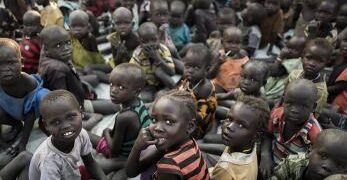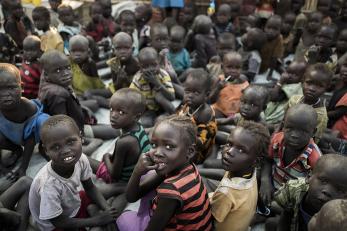By Riches Soberekon
According to Save the Children, around 498 children, and possibly even more, have tragically lost their lives to starvation during the four months of war in Sudan.
Arif Noor, the director of Save the Children in Sudan, expressed deep concern over the devastating impact of hunger, stating that “children are dying of hunger when it could have been completely avoided.”
Since the war began on April 15, at least 498 children in Sudan have died from starvation, with the potential for hundreds more casualties. This shocking reality of child deaths from hunger was unimaginable.
Save the Children’s ability to provide assistance has been severely hindered by the ongoing conflict, leading to the suspension of treatment for 31,000 malnourished children. The situation could worsen if aid operations remain impeded.
The war between the army and the Rapid Support Forces (FSR) has already resulted in approximately 5,000 deaths since April 15, according to the NGO Armed Conflict Location & Event Data Project (Acled). It has also forced over four million people to flee their homes.
The international community is struggling to secure the necessary funding for aid to displaced persons, refugees, and victims of sexual violence. Meanwhile, concerns about potential war crimes have been raised by the international justice system.
Humanitarian organizations face numerous challenges, including restricted access and attacks by authorities, which have hindered their ability to provide assistance. Currently, they have only received 27% of the funding needed to address the crisis.
Unfortunately, the violence continues in Khartoum and Darfur, particularly in Nyala, the capital of South Darfur. The UN reports that since August 11, there have been 60 deaths, 250 injuries, and 50,000 people displaced in the region.
The ongoing conflict in Darfur, a region the size of France, has had a severe impact on its population of approximately 48 million Sudanese.
The situation in Sudan remains dire, with children suffering from hunger and the conflict showing no signs of immediate resolution. International support and attention are crucial to address the urgent needs of the affected population.



































